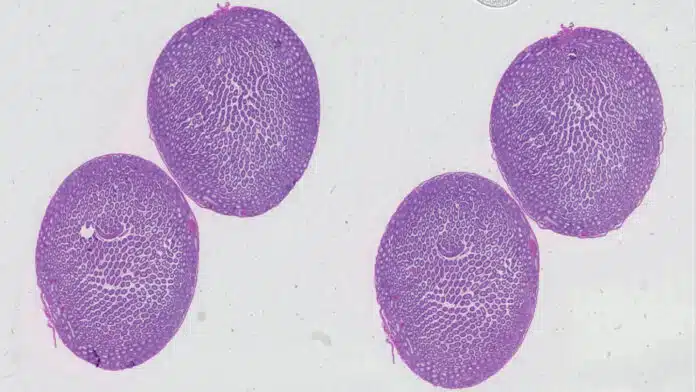
By Jay Kakade 18 Nov, 2024
Collected at: https://www.techexplorist.com/new-ai-model-identify-diseases-faster-more-accurately/93018/
A group of engineers and biologists at Washington State University have developed an artificial intelligence system capable of recognizing signs of disease from images of human tissues. This system uses scalable deep learning to identify infections, exceeding human capabilities in both time and accuracy.
To accurately perform histopathology diagnostics, researchers must integrate AI, computer vision, and medicine. This intersection is the core problem hindering the development of automatic disease detection models.
Additionally, the large size of microscopic images and complex structures at the tissue level adds another layer of tribulation. Finding pathological instances in gigapixel images is an exhaustive task even for humans, which also doubt the real-time applications of any detection model.
A new study published in Scientific Reports proposes a new deep learning model that efficiently identifies errors in gigapixel histopathology slides. This novel approach could increase the pace of disease-related research, which requires hours for pathologists to identify instances.
“This AI-based deep learning program was very, very accurate at looking at these tissues,” said Michael Skinner. “It could revolutionize this type of medicine for both animals and humans, essentially better facilitating these kinds of analysis.“
This AI model uses two components; data preparation and the deep learning model. In data preparation, a sliding window is used to view multiple resolutions of subsections of an image. For this, researchers used images from past epigenetic studies conducted by Skinner’s laboratory.
These images contained signs of disease in the kidney, testes, and ovarian tissues of rats and mice. To add extra input to the AI, researchers fed it with more gigapixel images, including breast cancer and lymph node metastasis.
During the testing, researchers found that the new AI model was more efficient and accurate than the previous systems. Interestingly, it even identified pathologies that were missed by trained humans.
“I think we now have a way to identify disease and tissue that is faster and more accurate than humans,” said Holder, an author of the study.
Before these modern systems, the analysis required multiple trained professionals to identify and annotate tissues under a microscope. This work was then again rechecked by a pathologist that reduce human error.
As per the researchers, Skinner’s research on epigenetics for large studies would’ve taken almost a year for humans. Now, with a new AI deep-learning model, researchers can get the same and more accurate data within a couple of weeks.
The computer engineers have integrated this model with billions of pixels, which is vital for handling extremely high-resolution images. Engineers have included the ability that scan the small tiles of images, along with placing them in the context of larger sections.
Additionally, this system has backpropagation. Meaning that it learns from its mistakes, fixes them, and tries not to repeat them.

“The network that we’ve designed is state-of-the-art,” Holder said. “We did comparisons to several other systems and other data sets for this paper, and it beat them all.“
Journal Reference
- Greeley, C., Holder, L., Nilsson, E. E., & Skinner, M. K. (2024). Scalable deep learning artificial intelligence histopathology slide analysis and validation. Scientific Reports, 14(1), 1-26. DOI: 10.1038/s41598-024-76807-x

Leave a Reply